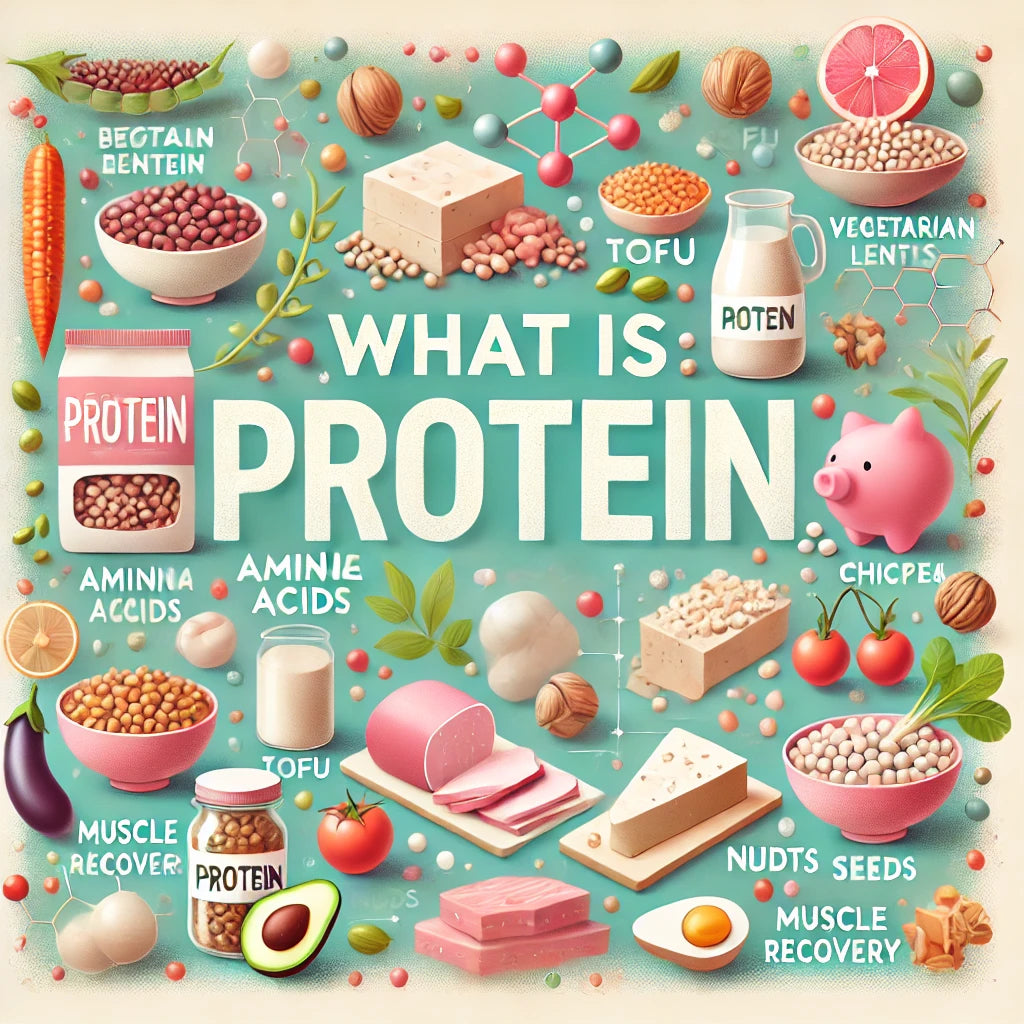
Protein: Your Body’s Best Friend!
Share
You’ve probably heard it everywhere—protein shakes at the gym, protein bars at the supermarket, even ads screaming, “Get your daily dose of protein!” But what is protein, really? Is it some kind of magical muscle powder? Is it just for athletes? Or is it a secret society we all need to join? Let’s break it down, one fun fact at a time.
Protein: The Body’s Building Blocks
Think of protein as the ultimate multitasker in your body. It’s like the friend who cooks, cleans, and fixes your Wi-Fi when it’s down. Protein helps:
- Build muscles, skin, and hair.
- Repair tissues after a workout (or after accidentally banging your knee on the coffee table).
- Produce enzymes and hormones that keep your body running like a well-oiled machine.
In short, without protein, you’d be a puddle of jelly—not the fun, wobbly kind, but the totally dysfunctional kind.
What’s Protein Made Of?
Science time! Protein is made up of little molecules called amino acids. Picture them like LEGO blocks. There are 20 types, and your body can make some of them. But there are 9 essential ones that your body can’t make, so you need to get them from food.
Think of it this way: Your body is the LEGO set, and your meals are the store where you buy the missing pieces.
Where Does Protein Come From?
You don’t need to go hunting for exotic superfoods to get your protein fix. Here’s a quick cheat sheet:
-
Animal-based proteins:
Chicken, eggs, fish, milk, cheese (hello, pizza lovers). -
Plant-based proteins:
Lentils, chickpeas, tofu, quinoa, nuts, seeds (yes, peanut butter counts). -
Sneaky sources:
Broccoli, spinach, and even potatoes have some protein. Who knew your veggies were low-key pulling their weight?
How Much Protein Do You Really Need?
Here’s the deal: The amount of protein you need depends on your lifestyle.
- Gym rats: If you’re pumping iron like a superhero, you’ll need more protein to rebuild those muscles.
- Office warriors: You still need protein to keep your body functioning, but maybe not as much as an athlete.
- Everyone else: A balanced diet with protein in every meal keeps you feeling full, strong, and energized.
A rough guide? Aim for 0.8–1 gram of protein per kilogram of your body weight. (Don’t worry, you don’t need to pull out a calculator for every meal. A palm-sized portion of protein is a good rule of thumb.)
Is Protein Only for Gym Buffs?
Absolutely not! Protein is for everyone. Whether you’re a yoga-loving zen master, a weekend cyclist, or a Netflix marathoner, protein plays a role in keeping you healthy.
- It helps seniors maintain muscle mass.
- It fuels growing kids.
- It’s even great for people looking to lose weight, as it keeps hunger at bay.
Fun Protein Facts to Impress Your Friends
- Your hair and nails? Made mostly of protein. So yes, that means you’re literally high-maintenance if you want healthy locks.
- The word protein comes from the Greek word proteios, meaning “primary” or “first place.” Protein is literally the MVP of your body.
- Too much protein isn’t great either—it can be tough on your kidneys. Balance is key.
How to Get Started with Protein
Here’s a quick and easy way to add more protein to your day:
- Breakfast: Add a scoop of peanut butter to your toast or smoothie.
- Lunch: Toss some grilled chicken or chickpeas into your salad.
- Snacks: Grab a handful of almonds or a boiled egg.
- Dinner: Swap your regular rice for quinoa—it’s a complete protein!
Final Thoughts: Protein for the Win
Protein isn’t just for bodybuilders or health fanatics—it’s for you. It’s the unsung hero quietly keeping your body running smoothly every day. So the next time someone asks, “What’s the big deal about protein?” you can smile and say, “It’s my body’s secret weapon.”
Now, over to you: How do you get your protein fix? Share your favorite protein-packed meals or snacks in the comments below. Let’s learn from each other!
